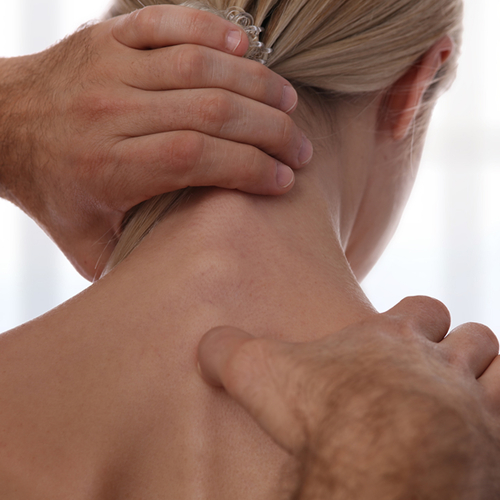
Acupressure
Alternative names: Active Acupressure, Acupoint Massage, Acupresión, Acupression, Acupression Active, Acupression Auriculaire, Acupression Chinoise, Acupression Occidentale, Acupression Passive, Acupression du Pied, Aroma Acupressure, Aromatherapy Acupressure, Auricular Acupressure, Chinese Acupressure, Ear Acupressure, Foot Acupressure, Nei Guan, Neiguan Point Acupressure, P6 Acupressure, Passive Acupressure, San Yin Jiao Acupressure, Self-Acupressure, SP6 Acupressure, Tapas Acupressure Technique, Traditional Chinese Acupressure, Western Acupressure
Background
Acupressure is a treatment used in traditional Chinese medicine (TCM). It's similar to acupuncture but involves applying pressure rather than needles.
The purpose of acupressure is to stimulate points that correspond to specific organs, emotions, or feelings. In TCM, it's thought that disease is caused by an imbalance or blocked flow of energy (qi, or "chi"). Most acupressure points are near nerves. Applying pressure at these points may block pain signals.
People use acupressure for many types of pain, especially back pain and menstrual cramps. It is also used for anxiety, constipation, nausea, asthma, and many other conditions, but there is no good scientific evidence to support most of these other uses.
Don't confuse acupressure with other practices used in TCM, including acupuncture and transcutaneous electrical acustimulation. These are not the same.
The purpose of acupressure is to stimulate points that correspond to specific organs, emotions, or feelings. In TCM, it's thought that disease is caused by an imbalance or blocked flow of energy (qi, or "chi"). Most acupressure points are near nerves. Applying pressure at these points may block pain signals.
People use acupressure for many types of pain, especially back pain and menstrual cramps. It is also used for anxiety, constipation, nausea, asthma, and many other conditions, but there is no good scientific evidence to support most of these other uses.
Don't confuse acupressure with other practices used in TCM, including acupuncture and transcutaneous electrical acustimulation. These are not the same.
Safety Safety definitions
Acupressure is likely safe when used appropriately. There are no known safety concerns.
Children: Acupressure is possibly safe when used appropriately in children.
Special Precautions & Warnings:
Pregnancy and breast-feeding: Acupressure is possibly safe when used during pregnancy and breast-feeding. There are no known safety concerns.Children: Acupressure is possibly safe when used appropriately in children.
Effectiveness
NatMed Pro rates effectiveness based on scientific evidence according to the following scale: Effective, Likely Effective, Possibly Effective, Possibly Ineffective, Likely Ineffective, Ineffective, and Insufficient Evidence to Rate.
Possibly effective Effectiveness definitions
- Back pain. Acupressure, used alone or with other treatments, might reduce back pain and disability better than physical therapy in people with low back pain.
- Tiredness in people with cancer. Acupressure seems to improve tiredness in people with cancer, particularly in males.
- Menstrual cramps (dysmenorrhea). Acupressure seems to reduce pain in adults and adolescents with painful periods. Self-administered acupressure also seems to help.
- Insomnia. Acupressure seems to improve sleep quality in people with insomnia or other sleep issues.
Possibly ineffective Effectiveness definitions
- Osteoarthritis. Acupressure doesn't seem to improve pain or function in people with knee osteoarthritis.
Dosing & administration
Acupressure is a common treatment used in traditional Chinese medicine (TCM). It involves applying pressure using hands, thumbs, fingers, or devices to specific parts or points on the body along pathways called "meridians."
Acupressure can be applied by a practitioner or self-administered. Passive acupressure devices have been developed, such as wrist bands that allow people to apply pressure to the P6 acupressure point, which has been used for the treatment and prevention of nausea and vomiting.
Acupressure can be applied by a practitioner or self-administered. Passive acupressure devices have been developed, such as wrist bands that allow people to apply pressure to the P6 acupressure point, which has been used for the treatment and prevention of nausea and vomiting.
Interactions with pharmaceuticals
It is not known if this treatment interacts with any medicines. Before using this treatment, talk with your health professional if you take any medications.
Interactions with herbs & supplements
There are no known interactions with herbs and supplements.
Interactions with foods
There are no known interactions with foods.
vital.ly has licensed monographs from TRC Healthcare.
This monograph was last reviewed on 17/12/2024 11:00:00 and last updated on 09/04/2022 22:16:26. Monographs are reviewed and/or updated multiple times per month and at least once per year.
Natural Medicines disclaims any responsibility related to medical consequences of using any medical product. Effort is made to ensure that the information contained in this monograph is accurate at the time it was published. Consumers and medical professionals who consult this monograph are cautioned that any medical or product related decision is the sole responsibility of the consumer and/or the health care professional. A legal License Agreement sets limitations on downloading, storing, or printing content from this Database. No reproduction of this monograph or any content from this Database is permitted without written permission from the publisher. It is unlawful to download, store, or distribute content from this site.


